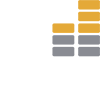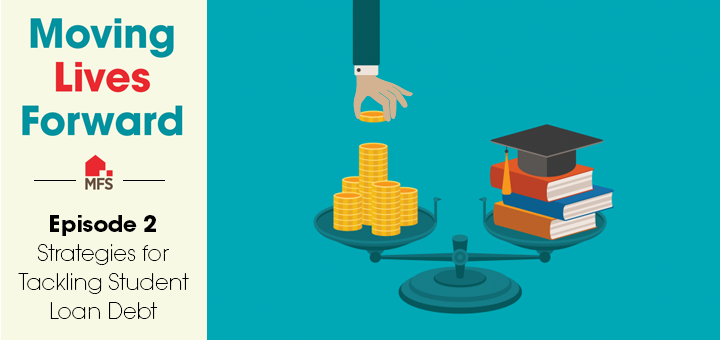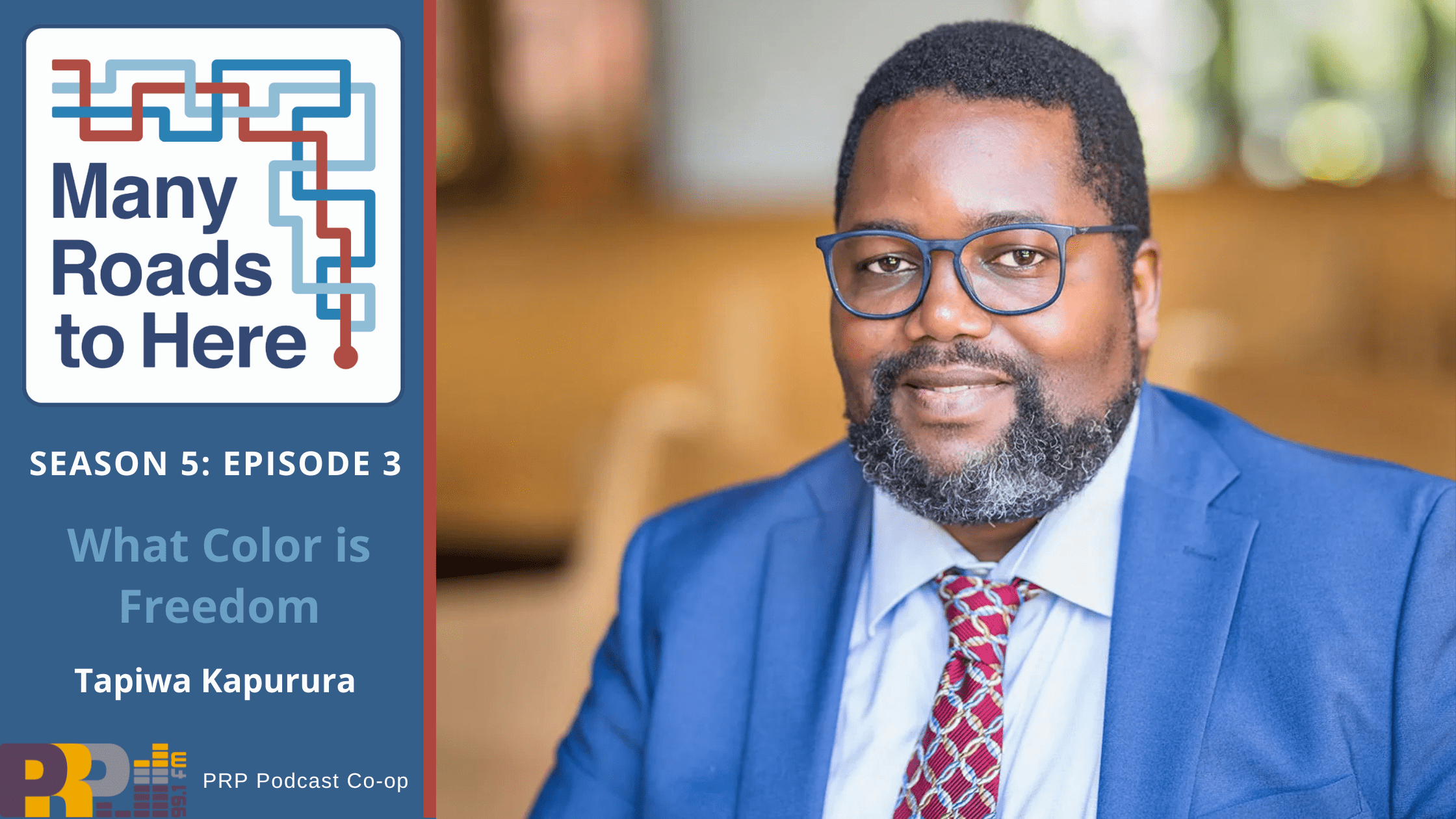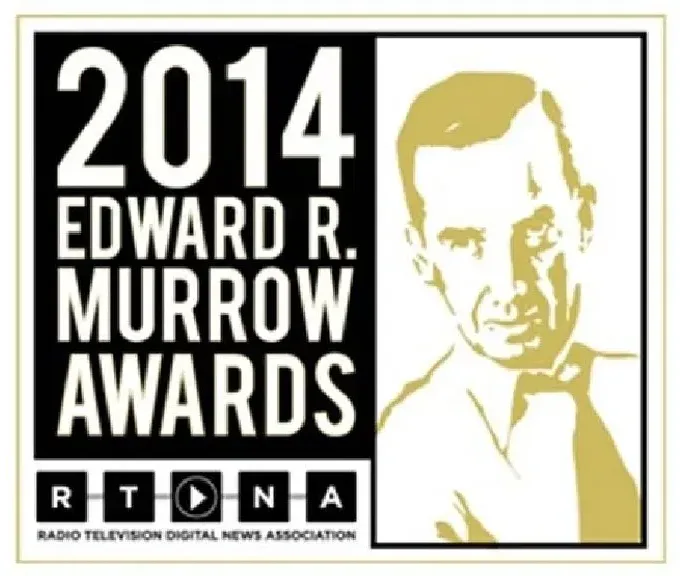For many higher-ed students, the trade-off of obtaining a diploma isn’t just four-plus years and a lot of hard work – it’s also a daunting sum of money paid out to colleges and universities. Many students patchwork their way through the financial burden with a mix of grants, parental support, scholarships, out-of-pocket payments…and student loans.
And while these loans seem like a great opportunity to students trying to get through school, loans can turn from financial stepping stones into debt sinkholes. Last fall, the U.S. Department of Education, put the average student loan debt at $33,310, and the total student loan debt at $1.44 trillion.
There are myriad reasons student loan debt stacks up, and a lot forks in the road to repayment. But regardless of how daunting the bill may be, and how easy it is to ignore the rising tide of debt, students will ultimately have to close the gap.
Get advice on getting out of debt in the second episode of Moving Lives Forward, as the podcast presents Strategies for Tackling Student Loan Debt. The episode airs April 14, at 4:30 pm, on 99.1 FM and streaming at prp.fm, and will be available soon thereafter here on this blog post, as well on Stitcher and iTunes.
This episode covers…
- Historical context of the U.S. student loan debt crisis
- The difference between private and federal loans
- What it means to to enter loan delinquency – and why it’s best avoided
- The difference between loan rehabilitation and loan consolidation
- The basics of income-based repayment plans
- Resources and advice for successful loan repayment
Moving Lives Forward is hosted by Rebecca Webb, cofounder of Portland Radio Project.
Joining Rebecca on this episode is Mark Oliver, a financial coach who’s been serving the Portland area since 2011, including over four years with the Economic Empowerment Programs at Metropolitan Family Service. His work has included everything from household budgeting and savings plans, to debt management and credit building.
Here are links to resources Mark mentions in this episode:
- nslds.ed.gov: Detailed information about one’s historical use of Federal Student Aid, including loan terms, interest rates, and accrued interest (for weighing the consequences of consolidation and forbearance decisions, among other things).
- studentloans.gov: Options for managing student loan accounts, applying for/re-certifying/changing payment plans, consolidating federal loans, enrolling in Public Service Loan Forgiveness, etc.
- Student Loan Borrowers Protection Center: Composed largely of former employees of the CFPB Student Loan Department who resigned publicly last summer (one with a letter that was published in the Washington Post), and who advocate for legislative policy at the state level, across the US.
Below is a roundup of pending relevant legislation in Oregon, some in committee right now, as well as a list of possible federal legislation. (Special thanks to Jeff Lauck, Economic Empowerment Programs Americorps member, for gathering this information.)
Oregon Bills
- SB 958 and HB 3204: Establishes Dreamers Access Program to award student loans to eligible students with demonstrated financial need.
- HB 2517: Prohibits state agencies from suspending or revoking commercial licenses due to student loan delinquency.
- HBs 2757 & 3400 and SBs 147 & 956: Allows payments on principal and interest on student loans to be deducted from personal income tax.
- HR 3381: Prohibits public universities from increasing tuition and mandatory fees charged to resident undergraduate and graduate students during 2019-2020 and 2020-2021 academic years.
- SB 660: Requires public universities to make proposal to reduce hardships from student loan debt.
Federal Bills
-
HR 1565: Establish a new higher education data system with better data on student retention, graduation, and earnings outcomes.
-
HR 1571 and S 672: Establish State-Federal partnerships to provide students debt-free education at in-state public institutions; Provide Federal Pell Grant eligibility to DREAMer students; Repeal drug offense-related suspension of eligibility for federal student aid.
-
HR 1794: Exclude AmeriCorps education award from taxable gross income
Listen to the podcast:
The Moving Lives Forward Podcast is supported by Metropolitan Family Service, an innovative, culturally-responsive Portland nonprofit.
- A Very New Pickathon in 2022 - August 13, 2022
- Pickathon returns to Pendarvis Farm! It’s not just the artists that’ll be new. - August 3, 2022
- July is BIPOC Mental Health Awareness Month (Black, Indigenous, Persons of Color) - July 14, 2022








Leave A Comment